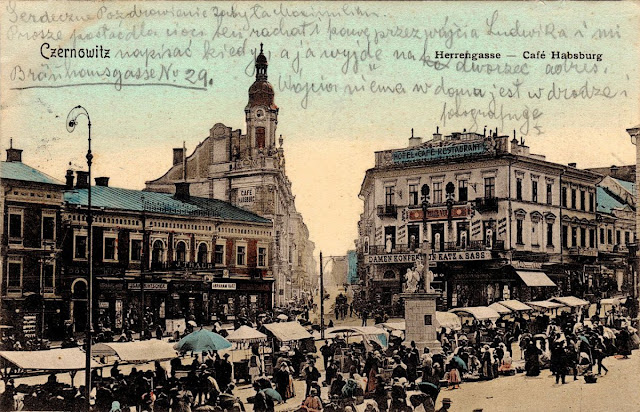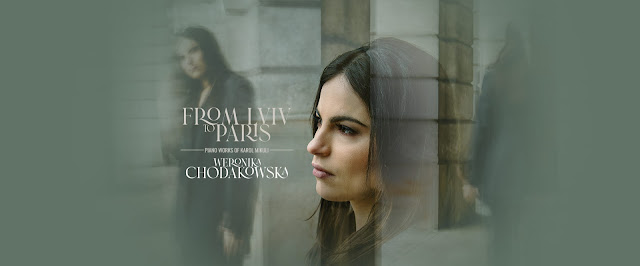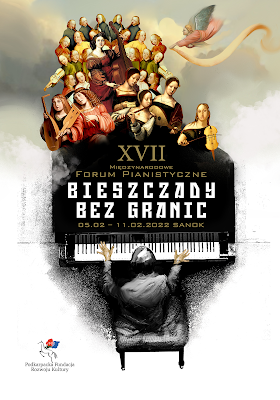FROM LVIV TO PARIS - Piano Works of Karol Mikuli - Weronika Chodakowska (piano)
FROM LVIV TO
PARIS
Piano Works of Karol Mikuli
Weronika Chodakowska (piano)
The psychological and creative complexities of living in the shadow of a renowned genius must be manifold. There are many examples of fine pianist-composers who studied or worked with an immortal musical creative genius and fully recognized with a sense of inadequacy the immense qualities of their work. They clearly felt a selfless respect towards their master, even a sacred devotion to the preservation of his work.
However, I am plagued by the question of the degree such acolytes experience a conscious or subconscious conflict or threat to their own creativity and musical self-esteem. Are they tempted into invidious comparisons during their own creative impulses, evolve competitive or derivative stylistic utterances or desperately attempt to escape an inescapable musical influence, even considering the undoubted quality of their own musical invention ?
This speculation arises strongly in the case of two composers, the Chopin amanuensis Julian Fontana and the Chopin pupil Karol Mikuli, both composing in thrall to this musical genius. Both dedicated much of their lives to the authentic and accurate dissemination of his work, one in Lviv in present day Ukraine, the other in Latin America and briefly Cuba at one time. Both detailed extensive descriptive writing of their experience of Chopin as a pianist and teacher.
Karol Mikuli (1821-1897) was a pianist, composer and pedagogue of Armenian descent born in Czernowitz in Galicia (Chernivtsi in present day Ukraine).
 |
The Market Square of Chernivtsi in the late XIX Century |
He was a pupil of Chopin for some three years, a music copyist and regarded the Pole exclusively as the paragon of all composers. 'Only the pupils knew the full Chopin the pianist, the one whose sublimity and perfection is revealed best seated alone with the privileged one in the classroom.' He felt a vocation to safeguard this legacy. He fled Paris during the 1848 revolution and returned to his birthplace of Chernivtsi where he became a successful concert pianist. He finally settled in Lviv (ruled by Austria at the time) in 1858 where he rejuvenated the musical life of the town. His performances of Chopin by the predominantly Polish population was received with delight.
His teaching of le climat de Chopin extended to many eminent and still influential pianists such as the nonpareil of Chopin interpreters Raul Koczalski (1885-1948), Moriz Rosenthal (1862-1946) and Aleksander Michałowski (1851-1938) All these pianists were fertilized by his intimate connection with Chopin's personality, music and teaching. Mikuli was engaged on the immense work of preparing most of Chopin's compositions for publication and became the most authoritative source of Chopin's teaching after his death. The city of Lviv became one of the most significant Chopin centers in Europe. Mikuli even replaced with Polish the German language of instruction at the Galician Music Society which he founded in Lviv.
Mikuli composed some thirty piano pieces, chamber works, songs and later sacred music. He was fascinated by Romanian folklore. The reason I was attracted to this remarkable album is that Weronika Chodakowska has devoted it entirely to his small piano pieces. Usually there is just a brief scattering among other composers of the day. There is a deep emotional meaning listening to this music composed by the most influential of Chopin pupils, especially in Warsaw in Poland.
One might imagine that daily involvement with Chopin and his work at such a close and intimate level as pupil and editor would preclude individuality of voice in his musical compositions. However, the civilized, lyrical and occasionally agitated voice of German Romanticism distantly reminiscent of Schumann, Mendelssohn and Schubert can be heard in the Prelude in C major Op.9 No.1, the Agitato in G minor Op.9 No.2 (both world premières) and in a poetically refined form in the Lied in G major Op.9 No.4.
Weronika Chodakowska is attracted irresistibly to obscure and forgotten Polish piano repertoire. She is a prize winner of many competitions and performs at music festivals and gives concerts to acclaim both in Poland and abroad. She earned her Master's Degree under the quite wonderful Professor Elzbieta Tarnawska at the Fryderyk Chopin University of Music in Warsaw.
Chodakowska is sensitive in her explorations of this relatively undiscovered repertoire with romantic phrasing and a seductive tone of velvety texture. Many of these works are world premières, Polish premières or premières on a modern instrument.
The charm and melodiousness is quite captivating such as the lively Scherzino in F sharp minor Op. 9 No.5. The nostalgic yearning and water-colour dreams contained in the Reverie in B minor Op.9 No.6 is of great beauty, a kind of dumka with rural Moldavian-Romanian folk song gestures of recalled landscapes that calm the heart. Even in the Mikuli Mazurkas there is very little derived from Chopin to my ear except the genre itself. The music is more a distillation by Chodakowska of the jasmine-perfumed atmosphere of a cultivated contemporary salon.
The melodically moving Mazurka Op. 10 and four rhythmically dancing Mazurkas designated Op.2 , all world premières, are graceful in folkloric conception and calm any troubled spirit. Chodakowska plays then with great rhythmic sensitivity, nostalgic poetry and articulate rubato. If the works bear any allegiance to his teacher Chopin, this feature makes them all the more expressively eloquent to me as an affectionate reminiscence. Chodakowska does not play them in a declamatory manner but more as a delicate homage to his adored composer. The passing shadow of Chopin across the stage into the present day is most affecting. I imagine the Ballade in B-flat major Op.21 not as a passionate outpouring of narrative suffering and reflection in the Chopin manner, but as the emotional journey of a less tormented heart, albeit a sensitive one of animated and poignant lyricism.
Chodakowska has beautifully captured the affectionate and tender creative influence of a towering musician on this gifted composer, his master. In many ways Mikuli has offered Fryderyk Chopin, a teacher and composer of genius, his own music written in the heartfelt spirit of a devoted and adoring apostle. Fascinating for us to hear this gift at last.....
 |
| Karol Mikuli (1821-1897) To purchase this CD https://opus-series.com/index.php?lang=pl&p=sklep&f=&c=&t=album&st=data&o=&pid=145&page=0 |





Comments
Post a Comment